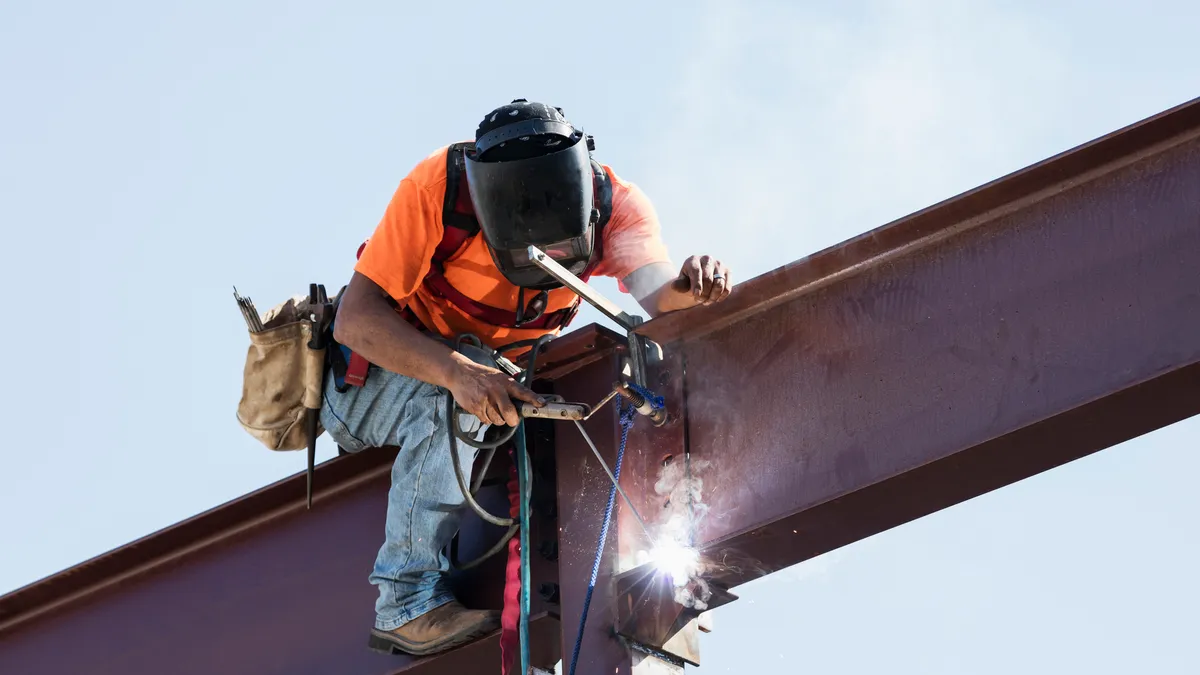Dive Brief:
- CEO confidence rose to the highest level since late 2022, while plans for higher capital spending reinforced signs of robust economic growth in the months ahead, the Business Roundtable said.
- Top executives last month increased their forecasts for 2024 gross domestic product growth to 2.1% from 1.9% during last quarter, the Business Roundtable said, describing a survey of 159 CEOs concluded on Feb. 29.
- “This quarter’s survey results underscore the resiliency of the U.S. economy and suggest accelerating economic activity over the next six months,” Chuck Robbins, Cisco CEO and chair of the Business Roundtable, said in a statement.
Dive Insight:
The Business Roundtable survey aligns with findings by both the Conference Board and Wolters Kluwer, which reveal a brightening outlook among top executives and economists at large companies across several industries.
Economists from companies ranging from Morgan Stanley to General Motors, and from Barclays to Eaton Corp., marked up their forecast for 2024 GDP growth to 2.3% from 2.1% in January, Wolters Kluwer said Monday.
Eighty-eight percent of economists expect that the Federal Reserve will achieve a “soft-landing,” or avoid a recession as tight monetary policy slows inflation to the Fed’s 2% target, according to Wolters Kluwer. In December, just 67% held that view, Wolters Kluwer said.
“The consensus [of economists] expects a modest rebound in inflation in the first half of this year,” Wolters Kluwer said. “But after that, inflation is expected to settle into a 2% to 2.2% range, which should please both financial markets and the Fed.”
Similarly, the Conference Board and Business Council found in a survey that CEO optimism in the economy rose this quarter to its highest level in two years as inflation cooled and the Fed forecast that it will begin trimming the highest borrowing costs in 23 years at some point in 2024.
The brightening outlook suggests that CEOs, CFOs and their C-suite colleagues may back up their optimism with higher spending on fixed investment.
A Business Roundtable index for capital investment — or outlays for computers, warehouses, software and other essentials for production — rose 26% compared with Q4.
Economists forecast companies will expand fixed investment 2.1% during the coming 12 months compared with 1.6% in the prior survey, Wolters Kluwer said.
Although the economy will likely cool compared with last year, C-suite executives are confident in sustained growth, Atlanta Fed President Rapheal Bostic said in a March 4 speech.
“As my staff and I have talked to business decision-makers in recent weeks, the theme we've heard rings of expectant optimism,” he said. Many executives are “ready to deploy assets and ramp up hiring when the time is right.”
“I asked one gathering of business leaders if they were ready to pounce at the first hint of an interest rate cut,” Bostic said. “The response was an overwhelming ‘Yes.’”
Yet a sudden burst of spending may reverse progress by the Fed in slowing demand and bringing it in balance with supply, Bostic said.
“That would create upward pressure on prices,” he said. “This threat of what I'll call pent-up exuberance is a new upside risk that I think bears scrutiny in coming months.”













